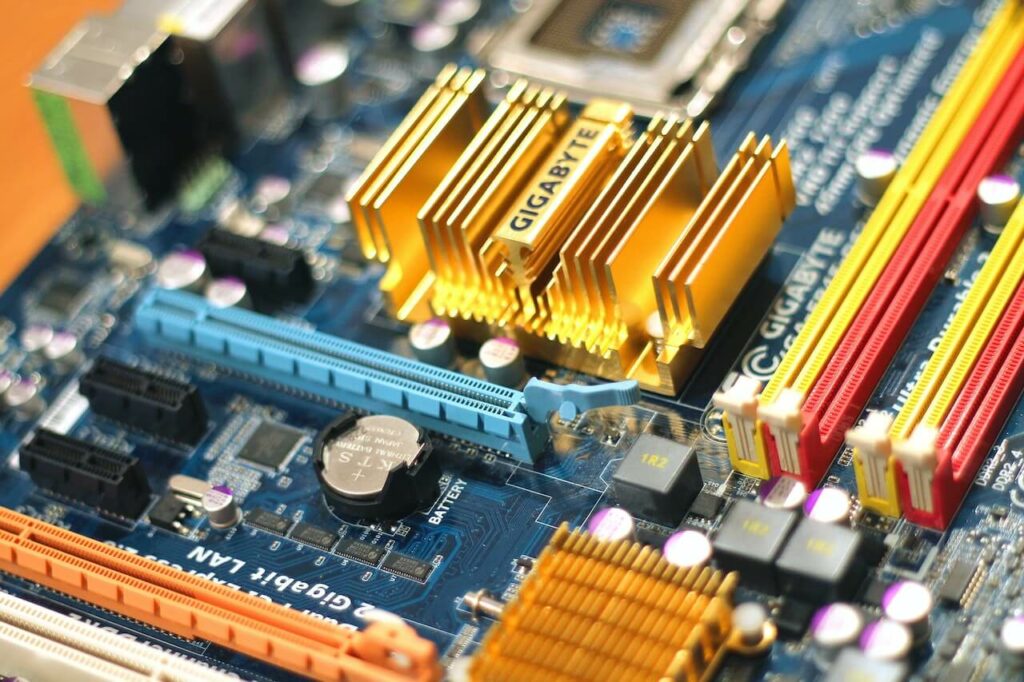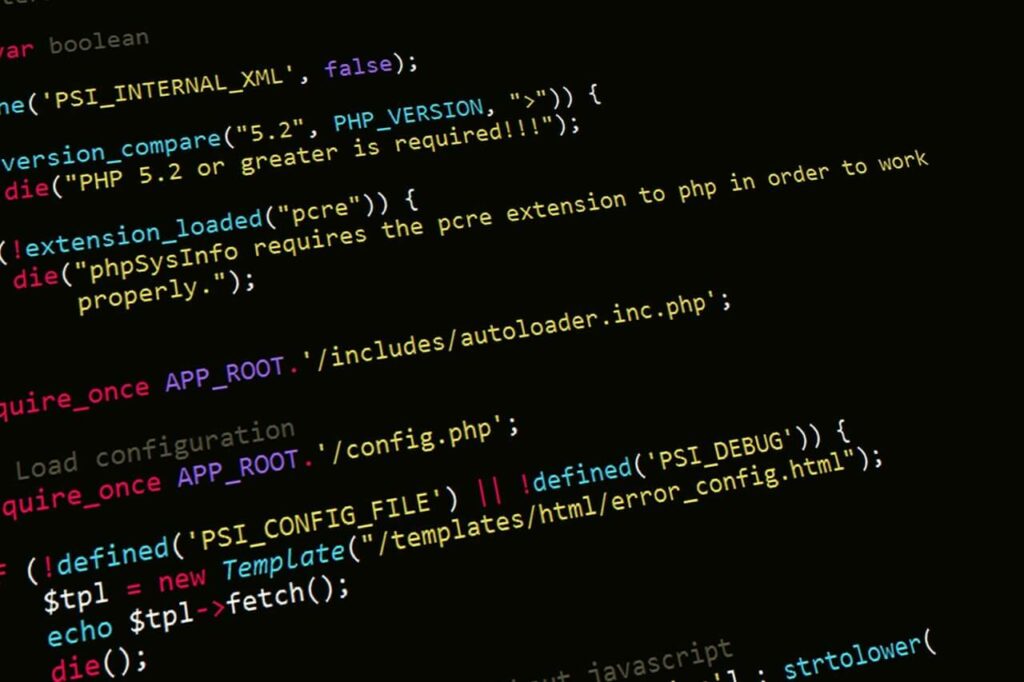Computer science degree opens a wide range of job opportunities for graduates, allowing them to work in IT departments in organizations of sectors such as healthcare, telecommunication, retail, manufacturing, aerospace and defense, financial service, etc.
Read on to find out more about what you can do with a computer degree and what salary range and job outlook are available for computer science graduates.
Why Study Computer Science?
Although computer science is a rigorous field, many benefits compensate for the challenging classes and projects. Some of the reasons to study computer science are:
- Computer scientists make the world a better, more connected, and faster place.
- Computer science jobs are rewarding and lucrative, as there’s a constant demand for professionals who can create, manage, and fix gadgets and code.
- You’ll get the chance to develop transferable IT skills that’ll help you build a successful career.
What Can You Do With a Computer Science Degree?
Computer science is a diverse field with many job opportunities for graduates. Here are 12 career paths you can take after getting a degree in computer science.
Software developer
Software developers are creative professionals tasked with designing and writing code to create applications, websites, and programs that run on computers and other devices. They’re also involved in every stage of the development process, from analyzing the needs of software users to rolling out a completed application.
Some of their day-to-day duties include:
- Creating models that outline the code necessary to develop software and applications
- Designing, testing, and building software programs
- Performing maintenance and testing to keep the software functioning.
Web developer
Generally, web developers are responsible for creating websites, designing user interfaces, integrating multimedia content onto a site, troubleshooting problems with performance or user experience, testing web applications, etc.
There are different types of web developers:
- Back-end web developers: They write code, verify if it works, and create the website’s structure.
- Front-end web developers: They work on the visual part of the website, design the physical layout of each page, integrate graphics, and use HTML to enhance the site.
- Full-stack developers: They do the work of both back-end and front-end developers.
- Webmasters: They are essentially website managers responsible for keeping the website updated and ensuring that the links and applications work properly.
UX designer
User experience (UX) designers typically work to optimize the interaction between users and products and make products or services usable, accessible, and enjoyable. Some of their day-to-day tasks include:
- Conduct user research
- Designing site, prototypes, or wireframes
- Analyzing elements of the product or service
- Understand the user and the brand
- Make design presentations.
IT project manager
IT project managers are professionals who help achieve IT goals by planning and executing projects for an organization. They might also lead software development, introduce new software solutions, or switch cloud providers.
Some of their duties include:
- Leading IT project from initiation to completion
- Overseeing risk management and mitigation efforts
- Communicating with stakeholders, IT managers, executive leaders, and vendors
- Developing and managing project budgets
Systems architect
Systems architects are trained professionals involved in the development and implementation strategy of computer systems and networks. They implement, maintain, and operate systems to meet the requirements of specific clients.
Some of the responsibilities of system architects are:
- Documenting the steps for initiating designs
- Describing system requirements for the entire setup within an organization
- Analyzing integration limitations and finding solutions
- Creating the system backup management plan
- Performing the price tag analysis for the equipment.
AI engineer
AI engineers are professionals who utilize AI and machine learning techniques to develop systems to help organizations cut costs, increase profits, make better business decisions, and increase efficiency.
Some of their specific tasks include:
- Automating AI infrastructure for the data science team
- Conducting statistical analysis and interpreting the results to optimize an organization’s decision-making process
- Creating and managing the AI development and production infrastructure
- Building AI models from scratch
IT technician
IT technicians are professionals providing computer or network support to customers. They’re also responsible for integrating or upgrading technology, creating and managing databases, and training other employees to use new systems and features.
The duties of IT technicians include:
- Monitoring networking equipment and servers
- Setting up equipment for new users
- Providing technical support by phone, site visits, or remote access
- Assisting with the design, implementation, and ongoing support of new software
- Monitoring web performance, security, and network availability
- Responding to IT issues (software, hardware maintenance, networking, etc.).
Database administrator
Database administrators are IT professionals who use specialist software to organize and maintain a company’s database. They’re also responsible for planning and developing a database and troubleshooting any issues that can arise.
Some of the day-to-day tasks of database administrators include:
- Monitoring performance and managing to provide fast responses to front-end users
- Developing and managing backup and recovery plans
- Managing the security and disaster recovery of a database
- Mapping out the conceptual design for a database.
Systems analyst
System analysts are professionals who utilize computers and related systems to design new IT solutions, integrate new features, and modify existing systems to improve the productivity and efficiency of a company. They also liaise between internal and external clients and stakeholders and present proposals.
✅ Request information on BAU's programs TODAY!
Some of the duties of systems analysts are:
- Finding potential solutions and assessing them for technical and business suitability
- Examining and analyzing existing IT systems
- Keeping up-to-date with technical and industry developments
Hardware engineer
Hardware engineers are technology professionals responsible for researching, designing, developing, and testing computer systems. They also can work in manufacturing computer-related components and products, such as memory systems, circuit boards, and networks.
Some of the typical duties include:
- Testing and evaluating integrated computer hardware systems and components
- Monitoring the production and manufacturing of hardware equipment and components
- Evaluating user needs and recommending appropriate systems and equipment
- Performing quality assurance reviews to ensure that hardware designs are accurate
Information security analyst
Information security analysts are crucial members of the security team who ensure an organization’s sensitive information and data are protected from cyberattacks and data breaches. Some of their duties include:
- Performing compliance control testing
- Keeping-up-to-date with evolving threats in cybersecurity
- Detecting and mediating various security aspects (software, physical, and network security)
Computer scientist
Computer scientists are highly trained professionals who apply theoretical concepts of computer science to real-world scenarios. They can also work in practical aspects of computer science and get involved in developing and designing computing software and information technology, improving computer hardware, creating algorithms, work with robotics, data systems, and artificial intelligence.
Some of their duties include:
- Developing and testing data structures, algorithms, and software
- Leading product development projects
- Learning, creating, and using programming languages
- Leading different projects
- Exploring ways to advance the efficiency of systems to improve computer hardware and software
Salary and Job Outlook for Computer Science Graduates
A significant advantage of a computer science degree is the lucrative salary and the high demand for computer and information technology. The Bureau of Labor Statistics estimates a 15% growth in employment this decade, with around 682,800 new jobs. It also reports that the median salary for this group of occupations was $97,430 in 2021.
Wrapping Up
Pursuing a future in the computer science field can be exciting and fulfilling. This field also offers competitive pay, job security, and more job opportunities. If you have an aptitude for working with computers and network systems, getting a computer science degree can be right for you.
Check out our bachelor’s program in Data Science and Information Technology to get started in the computer science field.














